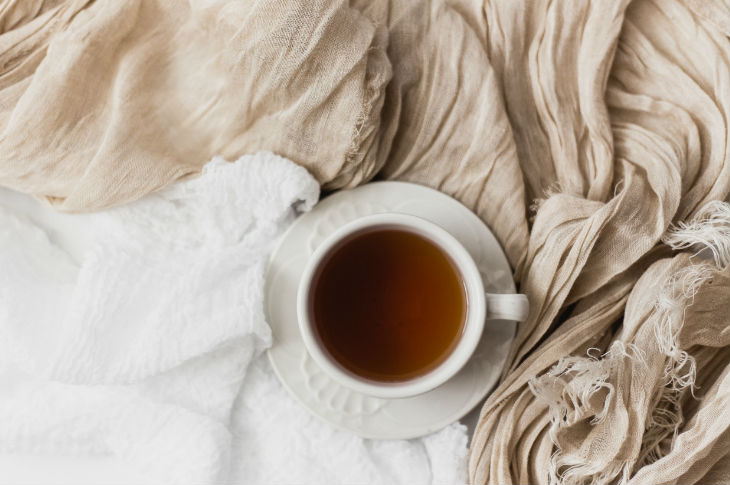
We hear so much about self-care these days that it can seem like we can never have too much of it. A bubble bath here, a mani-pedi there, a HIIT class here, a bottle of wine there. But not only can this all shrink your bank account, as with so many healthy practices, if you approach self-care from a “more is better” mindset, you may miss out on the actual benefits.
“One of the most important things is to get clarity on what we’re talking about with self-care,” says Jessica Matthews, DBH, assistant professor of integrative wellness at Point Loma Nazarene University and a national board-certified health and wellness coach. “Self-care is any activity that’s done deliberately to support our physical, mental, emotional, spiritual, or social well-being.”
With that in mind, here are seven signs you may want to rethink your self-care plan.
You do what other people tell you to do
Since it’s deliberate, self-care is best when it’s practiced with mindful awareness, says Matthews, who recommends asking yourself: What serves me best right now? What do I need to really nourish me? While it’s great to draw inspiration from friends, social media, and other sources, if you only do things that others have suggested, you’re missing out on the “self” part of the practice. “Self-care is not an activity that you don’t find meaning, value, or enjoyment in it,” Matthew says. “It’s also not an activity that you are forced to do. You want to do it.”
You only do self-care by yourself
Being in solitude can be an amazing way to de-stress, refocus on ourselves, and gain insights about ourselves that we otherwise never would. Sometimes that means establishing boundaries and saying no rather than meeting up with friends for mocktails or a Michael Jackson themed party. But too much isolation can cause you to miss out on an opportunity to practice some self-care by being social, doing something fun, and reaping the health benefits—such as lower risk of death from all causes and reduced stress.
You think you always need to push during workouts
“Of course exercise provides a wealth of benefits, but it doesn’t have to look a certain way” in order to be self-care, Matthews says. “We’ve been told that a really long run or intense workout will get our endorphins flowing. But maybe what you need is a gentle or restorative yoga class, a really fun, energetic dance fitness class, or a walk on a local trail.”
Remember: Self-care should be something you find joy in.
You always reach for a bottle of wine or a pint of ice cream
There’s nothing wrong with comfort food or alcohol, as long as it’s in moderation. The problem with using these for self-care comes when you fall into a rut, Matthews says, and do so without awareness. “When you have a stressful day and you find that you turn to those foods, ask, ‘Is this a choice that will be most optimal for my own care and nourishment?’” Sometimes that answer will be yes.
So, rather than thinking in black and white terms, like “I always have the entire six-pack of beer” or “I can never have beer,” find a way to fit that IPA (or brownie, or whatever your comfort is) into your life so that it supports your health, Matthew recommends.
You compare your self-care
Thanks to social media, it’s so easy to see others wearing a face mask and sipping tea while reading a novel or getting frequent massages and think, “I should do better!” But we are all unique, therefore what works for someone else may not work for you.
“We have the ability to discern what serves us,” Matthews says. “How wonderful is it that we can tap into our own inner wisdom about the ways that are most optimal to care for ourselves!” Lean into and trust yourself, and follow that wisdom to know what your personal self-care looks like. (This could include ignoring your Instagram feed for a while or unfollowing people who make you feel inadequate.)
You think self-care is never uncomfortable
Life brings challenges, pain, and discomfort. And those times can be perfect situations to pull out some self-care. However, be mindful that you are not avoiding things. “Self-care enables us to build the resources and have the system and tools in place so that when we encounter discomfort, we can find a way to gracefully navigate those moments,” Matthews says.
Go ahead and feel that sorrow, anger, rage, whatever the messy emotion is—and be confident that you will come through the other side of it.
You don’t change it up
Just as you cannot do one workout and expect to have muscles, “self-care is an active, on-going process. We don’t do just this one thing one time,” Matthews says. And just like your workouts, it’s often good to mix things up so you stay engaged and truly pick what suits your needs in your current moment.
This information is for educational purposes only and is not intended as a substitute for medical diagnosis or treatment. You should not use this information to diagnose or treat a health problem or condition. Always check with your doctor before changing your diet, altering your sleep habits, taking supplements, or starting a new fitness routine.

If you have questions about a Fitbit tracker, product availability, or the status of your order, contact our Support Team or search the Fitbit Community for answers.
Please note: Comments are moderated and may not appear immediately after submission.